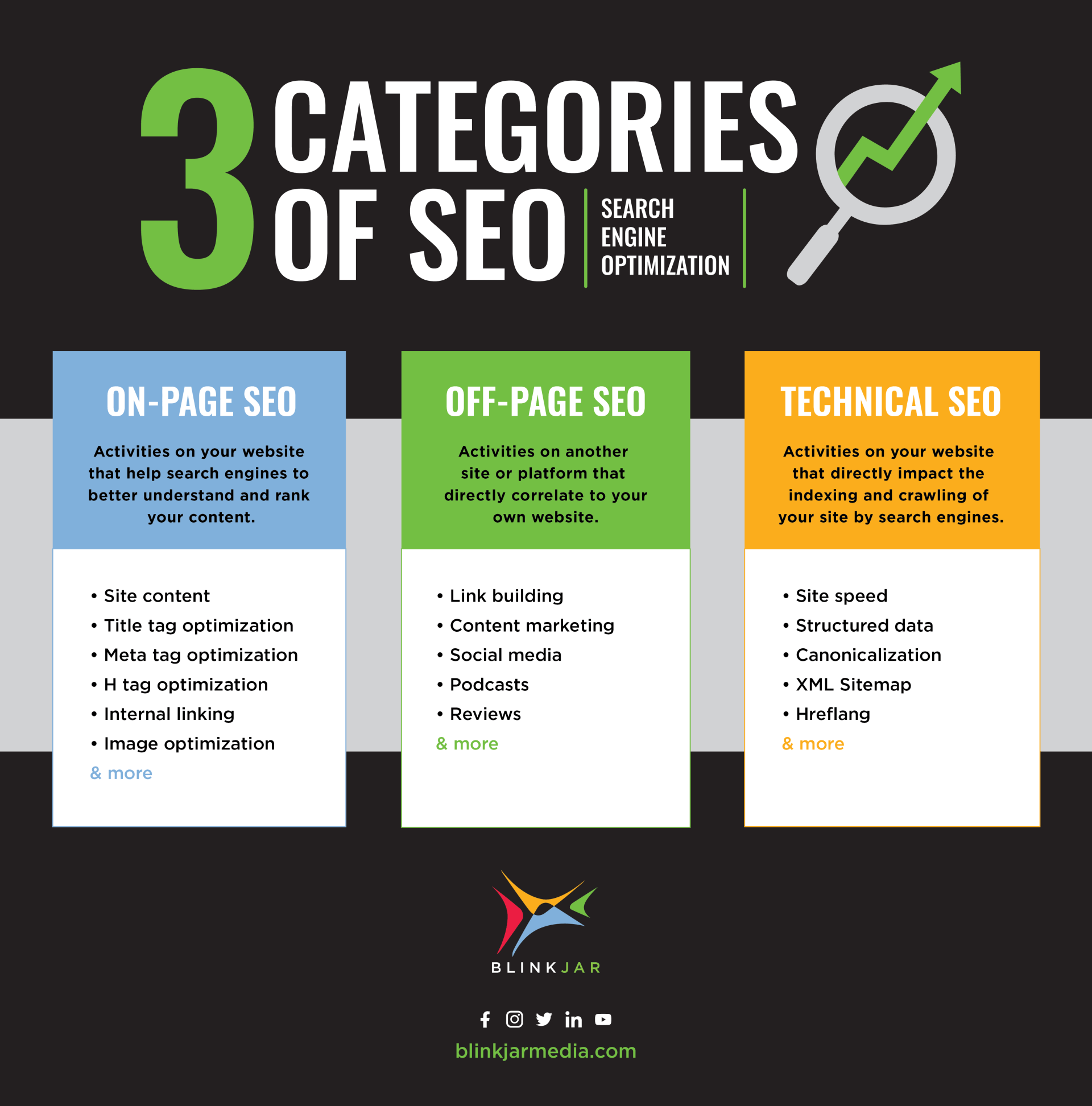Defining the 3 Categories of SEO [INFOGRAPHIC]
SEO. You’ve heard a lot about it and how important it is to the success of your online presence. Consumers aren’t going to be able to find you without it! Google won’t rank your website! It can be overwhelming and frustrating, particularly when you’re trying to determine just what the heck SEO is. On-page SEO, off-page SEO, technical SEO – there are so many
types of search engine optimization
and trying to figure out what they all mean exactly and how to implement them can be enough to make anyone throw in the proverbial marketing towel.
Not to worry, the BlinkJar Media team is well aware of how you feel. Even for professional marketers, keeping up with SEO changes and best practices is an ongoing part of our job. (Google likes to keep us all on our toes!) Still, there are some basics that you should understand about each of the three main types of SEO. Once you understand these, you can more easily develop an action plan and approach each one with confidence. To help, we’ve outlined the basic definition and examples of on-page, off-page, and technical SEO in the infographic below. Use it as a basic guideline to get started, and remember that BlinkJar is always here if you need a partner to help get it right!









